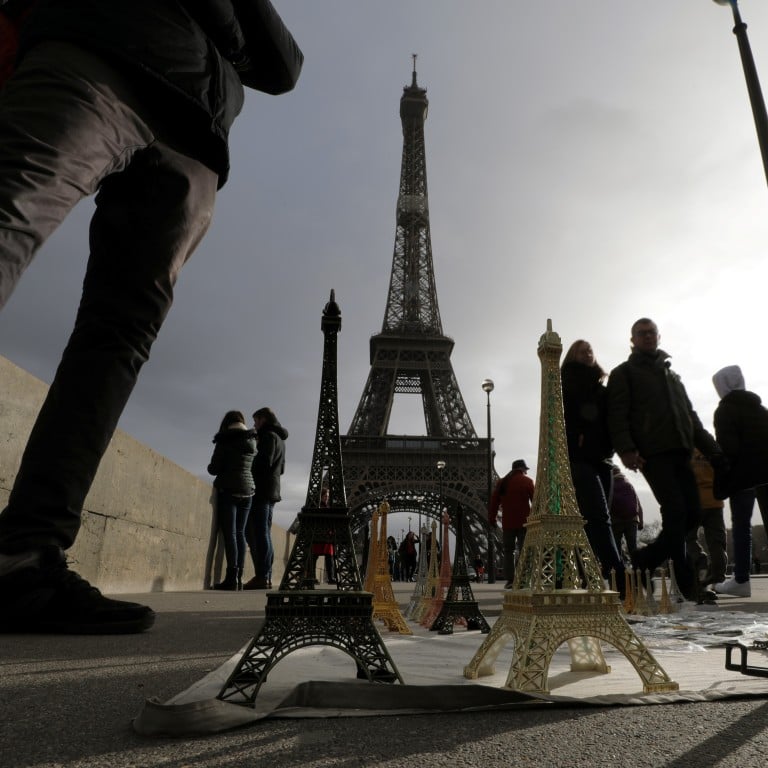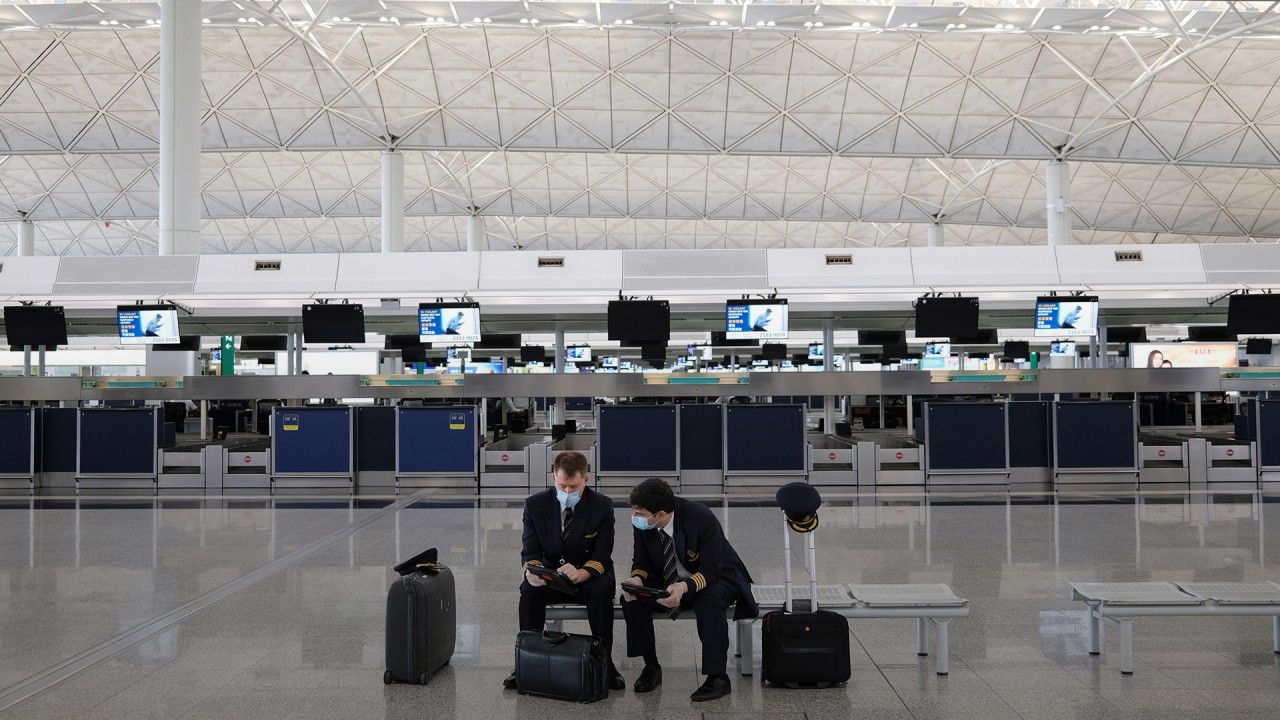
Demand for international travel to sink 80 per cent this year as coronavirus pandemic crushes tourism, says Euromonitor
- Recovery of international travel to pre-crisis level could be pushed back to 2023
- The number of trips travellers take this year will dramatically fall to 311 million from 1.48 billion trips in 2019
Demand for international travel could fall by as much as 80 per cent this year, and recovery to pre-crisis levels could be stretched into 2023 if the global economy sinks further amid a worsening coronavirus pandemic, according to Euromonitor International’s worst-case projections.
This means that the number of trips travellers take this year will dramatically fall to 311 million from 1.48 billion trips in 2019, and should a second wave take place, the demand for trips could fall to 232 million in 2021, the market research company said.
The forecasts are based on the assumption that social distancing will have to be observed much longer in the event of the pandemic lingering longer than expected. It also takes into account the possibility of the global economy contracting between 8 and 11.5 per cent, global infection rates of between 20 and 50 per cent and a mortality rate ranging from 1.5 per cent to 3.5 per cent.
The best-case forecast, meanwhile, predicts a 23 per cent decline in tourism this year, with recovery likely to begin in 2022.
Global tourism to take a US$80 billion hit and a year to shake off the effects of coronavirus outbreak
“The baseline assumptions expect recovery by 2022 for tourism demand,” said Caroline Bremner, head of travel at Euromonitor. “This is based on a number of factors including the development of the disease in terms of cases and deaths, the subsequent social distancing in place, as well as the economic impacts. For the more pessimistic scenarios, social distancing remains in place longer.”
The travel and tourism industry is one of the most severely hit sectors by the global pandemic as governments impose border restrictions and quarantine policies to stem the spread of the disease. The disruption to businesses has also led to a surge in unemployment across the globe and a decrease in workers’ income that can be used for discretionary spending such as travel and leisure.
Hong Kong’s aviation sector is also likely to see a decline in passenger numbers of as much as 23.6 million, putting at risk 146,000 jobs this year, according to the International Air Transportation Association. The city’s de facto flag carrier Cathay Pacific had received a HK$27.3 billion (US$3.5 billion) aid package from the government as part of its recapitalisation efforts amid a collapse in the tourism industry.
At the height of the outbreak in Asia-Pacific, eight out of 10 hotels in the region were estimated to have closed their doors to guests, at least temporarily, according to property consultancy Colliers.
Perhaps more worrying for those bitten by the travel bug is that international travel is likely to be generally more expensive post-Covid-19.

03:07
When can we travel? Hong Kong companies aim to get Asia’s tourists safely moving amid pandemic
“We expect average spend per international trip to increase from pre-Covid-19 levels,” Bremner said. “This will be driven by destinations pivoting to higher quality tourism rather than volume growth.”
Tourists will have to shell out more for flights, food and shopping. Lodging, car rental, package holidays, attractions and experiences, on the other hand, are likely to remain below pre-crisis levels.
Iain Langridge, divisional managing director for Asia Pacific at luxury hotel operator Belmond, believes that domestic and regional business will come back first, with long haul travel picking up again as consumer confidence gradually returns.
The unit of French luxury group LVMH, has reopened four of its Asian properties this month, and about half of its 46 properties across the globe will resume operations in August.
“Though it would not be surprising if the cost of flying fluctuates, we are maintaining our price integrity and focusing more than ever on the safety, intimacy and most importantly experiences that we can offer to our guests,” Langridge said.
Consulting firm Oliver Wyman, meanwhile, reckons that travellers are likely to be price-sensitive once they start travelling again, putting pressure on airlines and hotel operators to keep prices low.
“At the same time, we see global travellers to have significantly higher expectations of health/cleaning policies and execution of both airlines and hotel chains post-Covid-19,” said Katie Sham, principal at Oliver Wyman.
In a global travel survey the consultancy conducted in May in nine countries, 40 per cent said they plan to travel less in the next 18 months when the outbreak subsides and travel restrictions are lifted. Business travel, on the other hand, is likely to see a smaller impact. Some 30 per cent of respondents said they would be travelling less for business than planned in the next 18 months.

